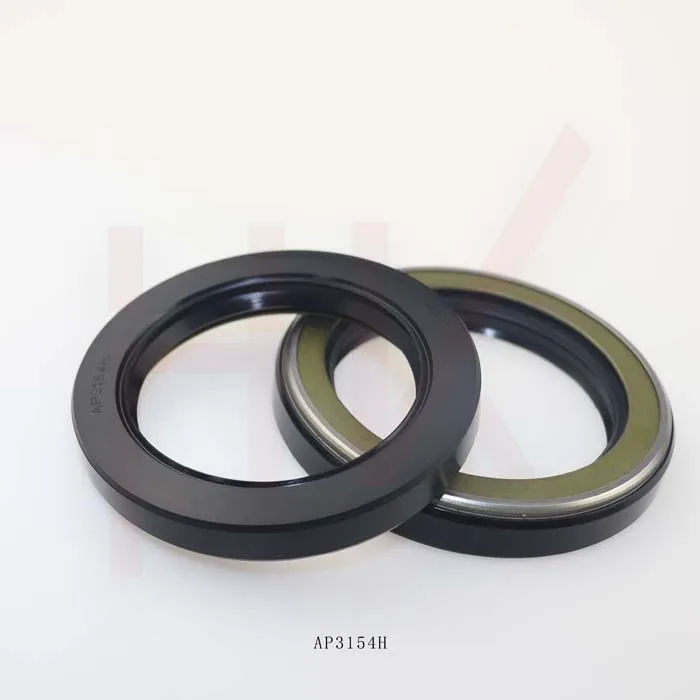Dis . 13, 2024 16:38 Back to list
what is the function of oil seal
The Function of Oil Seals
Oil seals, also known as grease seals or shaft seals, are essential components in various machinery and automotive applications. Their primary function is to prevent the escape of lubricants from the system while simultaneously preventing contaminants such as dirt, dust, and moisture from entering. This dual function is crucial for the efficient operation and longevity of machinery, making oil seals vital in both industrial and automotive contexts.
Design and Composition
Oil seals are typically composed of elastomeric materials, such as rubber, but can also be made from thermoplastics or other composites, depending on the specific application. The design usually includes a circular shape with a metal casing that provides structural integrity and maintains the seal's shape under pressure. The sealing lip, which is the part that comes into contact with the shaft, is often precision-engineered to create a tight fit, reducing the risk of leaks.
Preventing Lubricant Loss
One of the primary functions of oil seals is to prevent the loss of lubricants from the system. In engines, for example, oil plays a crucial role in reducing friction between moving parts, thus ensuring smooth operation and preventing overheating. If oil were to leak out, it could lead to inadequate lubrication, resulting in increased wear and tear on components, potential engine failure, and costly repairs. By maintaining the correct lubrication levels, oil seals help to enhance the efficiency and durability of machinery.
Protecting Against Contaminants
In addition to retaining lubricants, oil seals play a vital role in protecting machinery from external contaminants. Dirt, dust, and moisture can enter mechanical systems through openings, leading to significant operational issues. Contaminants can cause corrosion, wear, and chemical degradation of lubricants, ultimately harming the performance of the equipment. Oil seals act as a barrier, ensuring a clean environment that promotes optimal functioning and reduces maintenance costs.
what is the function of oil seal

Applications in Various Industries
Oil seals are widely used in numerous industries, including automotive, aerospace, marine, and manufacturing. In the automotive sector, they are found in engines, transmissions, and wheel hubs. For instance, crankshaft and camshaft seals are critical in preventing oil leakage from the engine while protecting sensitive components from dirt and contaminants.
In manufacturing, oil seals are used in rotating machinery, pumps, and gearboxes. Their ability to withstand high temperatures and pressures makes them suitable for heavy-duty applications. Additionally, in the aerospace industry, oil seals ensure the reliable operation of flight control systems and landing gear mechanisms, where failure is not an option.
Importance of Quality
The quality of oil seals is paramount for their performance. Inferior quality seals may lead to premature failure, resulting in oil leaks or ingress of contaminants. When selecting oil seals, it is essential to consider factors such as the material, design, and compatibility with the operating environment. Utilizing high-quality seals tailored to specific applications can significantly extend the life of equipment and reduce the need for frequent maintenance.
Conclusion
In summary, oil seals are critical components that serve the dual purpose of retaining lubricants and keeping contaminants out. Their importance spans various industries, from automotive to manufacturing, where they help maintain the efficiency and longevity of machinery. Given the critical role they play in minimizing maintenance costs and preventing operational failures, investing in high-quality oil seals is a wise decision for anyone involved in machinery and mechanical systems. Understanding their function and ensuring the right selection can lead to enhanced reliability and performance in equipment, safeguarding both investments and operational capabilities.
-
The Trans-formative Journey of Wheel Hub Oil Seals
NewsJun.06,2025
-
Graphene-Enhanced Oil Seals: Revolutionizing High-Pressure Oil Sealing
NewsJun.06,2025
-
Future of Hydraulic Sealing: Advanced Intelligent TCN Oil Seals
NewsJun.06,2025
-
Don’t Let a Broken TCV Oil Seal Ruin Your Day
NewsJun.06,2025
-
Bio-Inspired Dust Seals for Better Sealing Performance
NewsJun.06,2025
-
Biodegradable and Sustainable Hydraulic Seal Materials
NewsJun.06,2025
-
Top Oil Seal Solutions for Your Industrial Needs
NewsMay.22,2025
Products categories
















